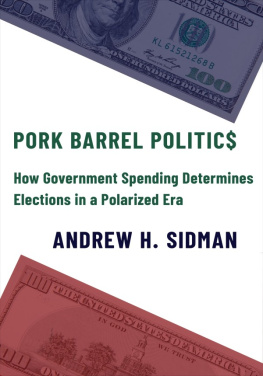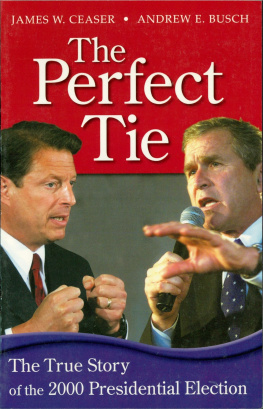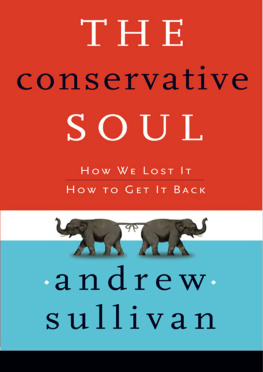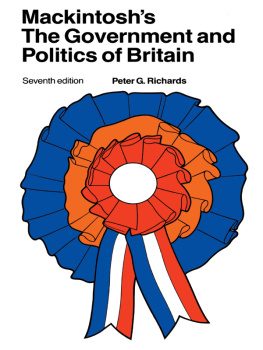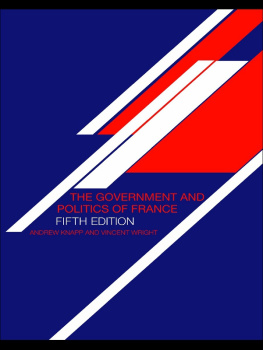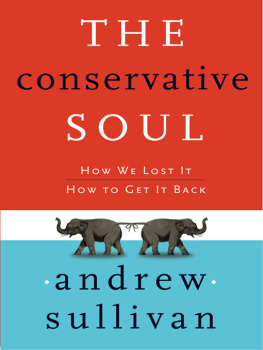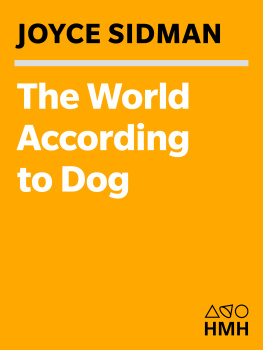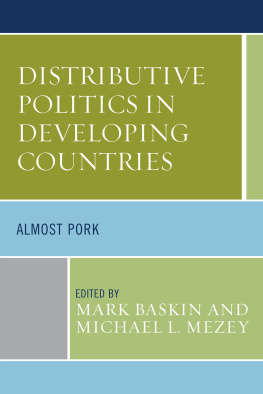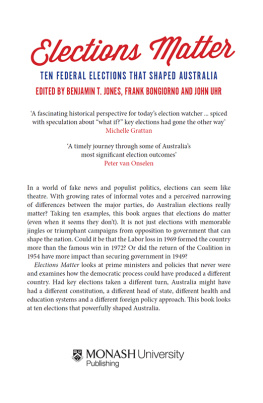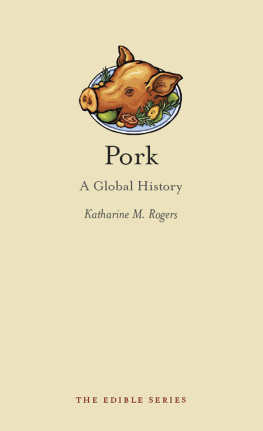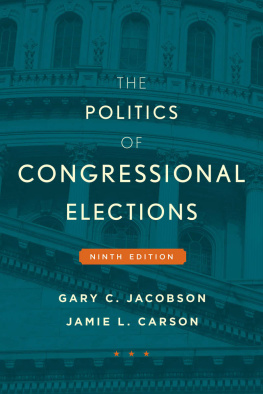Andrew Sidman - Pork Barrel Politics: How Government Spending Determines Elections in a Polarized Era
Here you can read online Andrew Sidman - Pork Barrel Politics: How Government Spending Determines Elections in a Polarized Era full text of the book (entire story) in english for free. Download pdf and epub, get meaning, cover and reviews about this ebook. year: 2019, publisher: Columbia University Press, genre: Politics. Description of the work, (preface) as well as reviews are available. Best literature library LitArk.com created for fans of good reading and offers a wide selection of genres:
Romance novel
Science fiction
Adventure
Detective
Science
History
Home and family
Prose
Art
Politics
Computer
Non-fiction
Religion
Business
Children
Humor
Choose a favorite category and find really read worthwhile books. Enjoy immersion in the world of imagination, feel the emotions of the characters or learn something new for yourself, make an fascinating discovery.
- Book:Pork Barrel Politics: How Government Spending Determines Elections in a Polarized Era
- Author:
- Publisher:Columbia University Press
- Genre:
- Year:2019
- Rating:5 / 5
- Favourites:Add to favourites
- Your mark:
- 100
- 1
- 2
- 3
- 4
- 5
Pork Barrel Politics: How Government Spending Determines Elections in a Polarized Era: summary, description and annotation
We offer to read an annotation, description, summary or preface (depends on what the author of the book "Pork Barrel Politics: How Government Spending Determines Elections in a Polarized Era" wrote himself). If you haven't found the necessary information about the book — write in the comments, we will try to find it.
Andrew Sidman: author's other books
Who wrote Pork Barrel Politics: How Government Spending Determines Elections in a Polarized Era? Find out the surname, the name of the author of the book and a list of all author's works by series.
Pork Barrel Politics: How Government Spending Determines Elections in a Polarized Era — read online for free the complete book (whole text) full work
Below is the text of the book, divided by pages. System saving the place of the last page read, allows you to conveniently read the book "Pork Barrel Politics: How Government Spending Determines Elections in a Polarized Era" online for free, without having to search again every time where you left off. Put a bookmark, and you can go to the page where you finished reading at any time.
Font size:
Interval:
Bookmark:

New York
Publishers Since 1893
New York Chichester, West Sussex
cup.columbia.edu
Copyright 2019 Columbia University Press
All rights reserved
E-ISBN 978-0-231-55040-6
Names: Sidman, Andrew H., author.
Title: Pork barrel politics: how government spending determines elections in a polarized era / Andrew H. Sidman.
Description: New York: Columbia University Press, 2019. | Includes bibliographical references and index.
Identifiers: LCCN 2018058411| ISBN 9780231193580 (cloth: alk. paper) | ISBN 9780231193597 (pbk.: alk. paper) | ISBN 9780231550406 (e-book)
Subjects: LCSH: United States. CongressElections. | United States. CongressAppropriations and expenditures. | Government spending policyUnited States. | Polarization (Social sciences)Political aspectsUnited States.
Classification: LCC JK1976 .S58 2019 | DDC 324.973dc23
LC record available at https://lccn.loc.gov/2018058411
Incumbents and Pork Barrel Politics
Pursuing the Pork Barrel
An Electoral History of the Pork Barrel
Attitudes, Voting, and the Pork Barrel
Challenges from Within the Party
General-Election Challengers and Campaigns
Election Outcomes
Font size:
Interval:
Bookmark:
Similar books «Pork Barrel Politics: How Government Spending Determines Elections in a Polarized Era»
Look at similar books to Pork Barrel Politics: How Government Spending Determines Elections in a Polarized Era. We have selected literature similar in name and meaning in the hope of providing readers with more options to find new, interesting, not yet read works.
Discussion, reviews of the book Pork Barrel Politics: How Government Spending Determines Elections in a Polarized Era and just readers' own opinions. Leave your comments, write what you think about the work, its meaning or the main characters. Specify what exactly you liked and what you didn't like, and why you think so.

